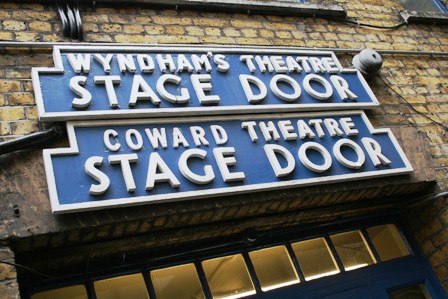
Big names required to lead a sector facing further change
Edition number 27; dateline 29 January 2010
Who will take up the challenge?
As is customary at TLR Towers, we omitted a January issue of The Leisure Review from the calendar, which means the February 2010 edition brings us skipping merrily into the last year of the decade and, because it is the last year of the decade despite what so many other media outlets might tell you, we have no reason to waste further time on the apparently obligatory ‘best of the decade’ lists. While we have a keen sense of history at The Leisure Review, we also like to look forward, which is why we were so keen to facilitate, with the assistance and support of the IDeA, the government’s own improvement and development agency for local government, The Leisure Review Futures Summit.
It was not really our idea – the concept of future leaders interacting with current senior figures came from the first TLR summit – but we were delighted to be able to host the debate. At The Leisure Review we believe that it is our role, if indeed we can be said to have any specific role, to serve as a crucible, or perhaps catalyst, for discussion of all aspects of the sport, leisure and culture sector. This has prompted development of further TLR events, including the inaugural TLR conference (some say symposium; see the news page to make up your own mind) later in the year. There will of course be further news of this in future issues.
As well as an events programme, the Futures Summit set us thinking about the nature of leaders and leadership. The delightfully non-linear debate at the Lansdowne, which we have tried to capture in the report of proceedings, was illustrative of the great many topics, attitudes and opinions driven by good leadership. However, the nature of good leadership is elusive; everyone thinks they know it when they see it, a lot of people think they can do it but hardly anyone thinks they have been subjected to it. Able leaders and good leadership are surely evident in every feature article in this and arguably every other issue of The Leisure Review. Any successful project will require effective leaders and appropriate leadership, particularly in the case of huge and complicated project such as that recently completed at the Ashmolean in Oxford. British Cycling surely has it but they say their whole structure is athlete-focused and athlete-driven. Does the process of coaching rule the coaching practitioner out of consideration for leadership? What comprises leadership? “Good leaders are brave leaders” was one of the comments from the summit but recklessness – only a short step along the bravery gradient from iconoclasm – is surely not part of the package. A glance at the newspapers or trade press (whatever your trade) would seem to suggest that so many leaders – many of them so-called or self-styled – seem short on eyesight, never mind vision. That a senior figure from the Ryder Cup, for example, should recently profess to being astonished that sales of the corporate packages were slow or that so many of ‘our’ professional football clubs seem on the edge of a financial precipice suggests a marked lack of insight, never mind foresight. Perhaps the arts fare better in the context of the tradition of leading lights, auteurs and impresarios? If so might it perhaps have something to do with the often collaborative nature of performance art? However, for every towering figure of the stage there are numerous ogres of mediocrity so the jury may well be out for some time.
There are no definitive answers, of course, only future questions relating to leadership as a fascinating area of management, whether in theory or practice. What it means for the sport, leisure and culture sector is difficult to gauge but with a general election imminent and major changes to public, private and voluntary sectors on the cards, it would not be outlandish to suggest that there are huge opportunities for the sector alongside the by-now-familiar challenges. In these changing times a little leadership could go a very long way indeed. But from where, and from whom, will it come?
Announcing a new arrival
We are delighted to welcome the Sport, Leisure and Culture Consultancy as an official supporter of The Leisure Review. The TLR business plan has always contained a few lines on the subject of “developing a revenue stream to enable the title to continue and to flourish” but it is a tradition at TLR Towers that such issues are handled with a level of subtlety that approaches diffidence. The Sport, Leisure and Culture Consultancy has been generous enough to recognise a value in associating their name with ours, not least putting its name in front of our readers. While Sideliner will no doubt reserve the right to be rude about them if occasion is deemed to merit it, we are pleased to have SLC on board. If you do contact them, please tell mention that you saw them in The Leisure Review. If your organisation would like to join them, three further packages are available. Hurry now while stocks last.
Jonathan Ives
Editor
letter from the editor
The Leisure Review editorial
